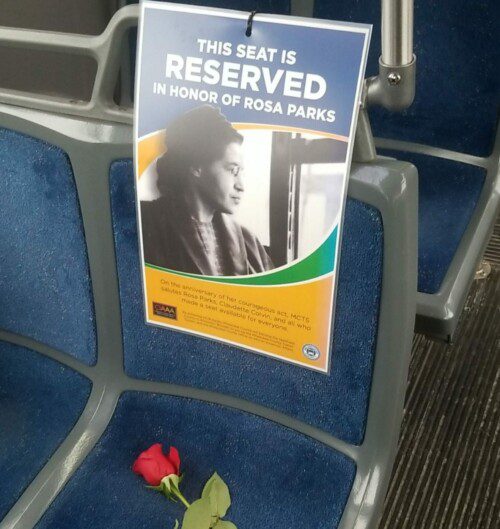
On December 1, 1955, a black seamstress named Rosa Parks got on a bus in Montgomery, Alabama and refused to move when the bus driver told her to give up her seat to a white man.
Her act of quiet defiance prompted African Americans throughout Montgomery to boycott the city buses for more than a year. Eventually it led to a Supreme Court decision banning segregation on public transportation.
Sixty-four years later, the Black Lives Matter movement and conversations about white privilege throughout many communities are bringing to the fore the pervasive wound of racial inequality that the United States has still not fully confronted.
But sometimes a symbolic act of reparation shows that things can change. For the second year in a row, the city of Milwaukee, Wisconsin remembered Rosa Parks by reserving one empty seat on each of its buses in her honor. On each seat lay a red rose and a placard with Parks’s and the story of her resistance.
Image Credit:
- Rosa Parks Bus Seat: Milwaukee County Transit System
MORE RADICAL JOY REVEALED
“There’s No Wounding Here”
Every now and then, around this time of year, in the weeks leading up to the Global Earth Exchange, someone emails to tell me they’d like to participate in our annual event of giving beauty [...]
Do It Though No One Notices
A young woman I know who lives in North Carolina considers herself an ardent environmental activist. She belongs to the Sierra Club and The Wilderness Society, works for an organization that runs therapeutic wilderness programs [...]
In Memory of a Cardinal
Radical Joy for Hard Times has always urged our members around the world to give attention and beauty to those places and beings that have meaning for them. It’s not necessary to seek out some [...]


